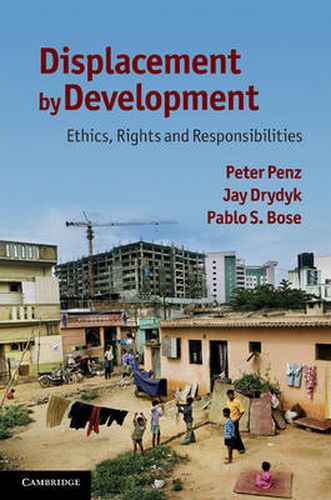Readings Newsletter
Become a Readings Member to make your shopping experience even easier.
Sign in or sign up for free!
You’re not far away from qualifying for FREE standard shipping within Australia
You’ve qualified for FREE standard shipping within Australia
The cart is loading…






For decades, policy-makers in government, development banks and foundations, NGOs, researchers and students have struggled with the problem of how to protect people who are displaced from their homes and livelihoods by development projects. This book addresses these concerns and explores how debates often become deadlocked between ‘managerial’ and ‘movementist’ perspectives. Using development ethics to determine the rights and responsibilities of various stakeholders, the authors find that displaced people must be empowered so as to share equitably in benefits rather than being victimized. They propose a governance model for development projects that would transform conflict over displacement into a more manageable collective bargaining process and would empower displaced people to achieve equitable results. Their book will be valuable for readers in a wide range of fields including ethics, development studies, politics and international relations as well as policy making, project management and community development.
$9.00 standard shipping within Australia
FREE standard shipping within Australia for orders over $100.00
Express & International shipping calculated at checkout
For decades, policy-makers in government, development banks and foundations, NGOs, researchers and students have struggled with the problem of how to protect people who are displaced from their homes and livelihoods by development projects. This book addresses these concerns and explores how debates often become deadlocked between ‘managerial’ and ‘movementist’ perspectives. Using development ethics to determine the rights and responsibilities of various stakeholders, the authors find that displaced people must be empowered so as to share equitably in benefits rather than being victimized. They propose a governance model for development projects that would transform conflict over displacement into a more manageable collective bargaining process and would empower displaced people to achieve equitable results. Their book will be valuable for readers in a wide range of fields including ethics, development studies, politics and international relations as well as policy making, project management and community development.